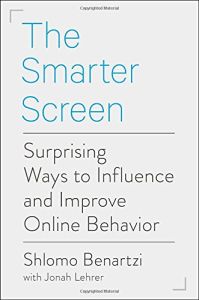Join getAbstract to access the summary!

Join getAbstract to access the summary!
Shlomo Benartzi and Jonah Lehrer
The Smarter Screen
Surprising Ways to Influence and Improve Online Behavior
Portfolio, 2015
What's inside?
The digital age challenges you to navigate abundant choices and process copious amounts of data.
Recommendation
People spend more time than ever interacting with screens, and they behave differently online than they do in the physical world. You’re likely to spend more money shopping online via your smartphone than you would in the store or shopping on your home computer. Various factors that affect on-screen behavior enable people to process and retain digital information more effectively and to make smarter online decisions. Behavioral economist Shlomo Benartzi conducted extensive research into online behavior and offers suggestions to help you make smarter choices. He is an articulate writer and diligent researcher – at times, too diligent. Although navigating Benartzi’s labyrinth of research studies takes patience, the results are worthwhile. getAbstract recommends his conclusions to online business managers, website architects and web consumers.
Summary
About the Authors
Author of Save More Tomorrow and Thinking Smarter, Shlomo Benartzi is a behavioral economist and co-chair of the Behavioral Decision-Making Group at UCLA.

















Comment on this summary